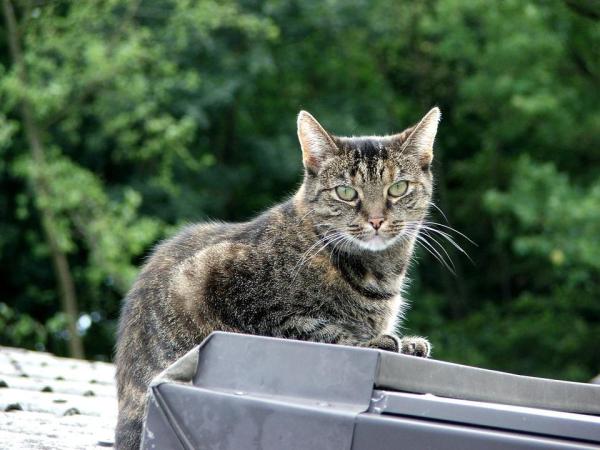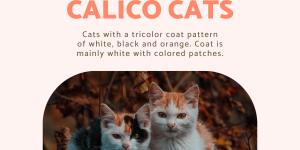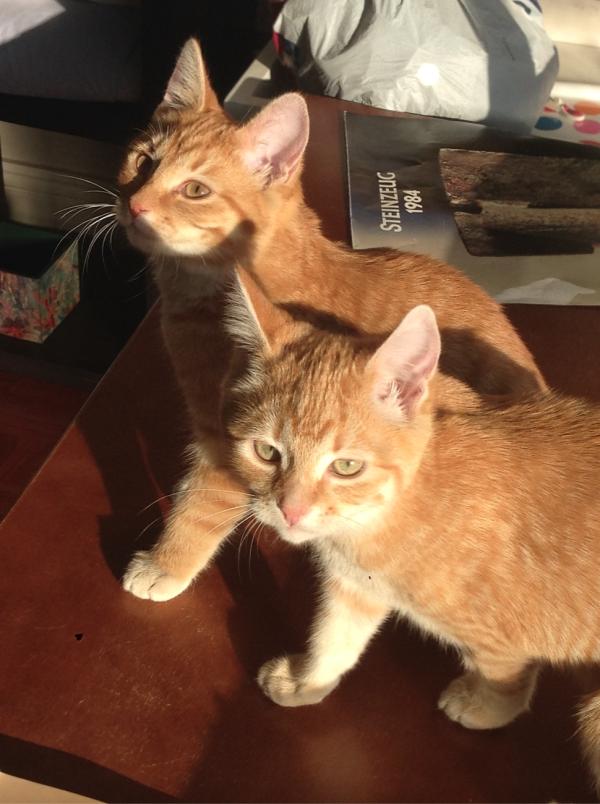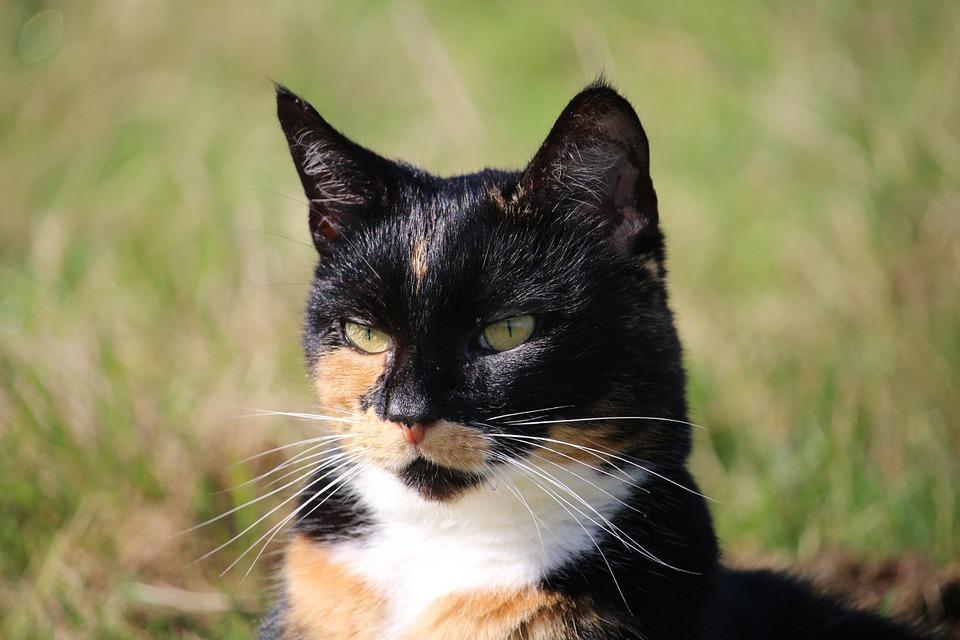Purebred vs. Mixed Breed Cats - Advantages and Disadvantages



See files for Cats
There are many unexpected events which occur when you adopt a cat. While we do everything we can to prepare for the arrival of a feline into our family, we need to expect the unexpected. For example, we need to ensure we have the means to pay veterinary bills if some threat to their health occurs. For this reason, many people opt for a purebred cat. Each cat breed has certain characteristics and behaviors indicative of the group. This is due to the genetic engineering which has occurred to result in the breed. Many people think that adopting a mixed breed cat is more difficult as we may not know what lies ahead.
The truth is no one will know how a cat will be once they come to live with us. What we can say at AnimalWised, is that there are advantages and disadvantages of purebred vs. mixed breed cats. We look at these pros and cons so you can make the best decision when adopting a cat.
What is a purebred cat?
To know more about purebred cats, we need to know about the history of humans and cats. Due to the limits of the historical record, we can't be sure exactly when the domestication of cats began. Some sources consider it to have begun in vain around 9,000 years ago. Some even suggest cats may have domesticated themselves by approaching human settlements to use their resources[1].
What we do know about the evolution and history of cats is that humans have interfered. Just as they have done with dog and horse breeds, we began to cross certain cat specimens with others to promote specific characteristics. The result is that we valued these new specimens so greatly, we created a breed standardization so the breed line could be maintained.
While certain breeds have existed in some form for much longer, the first official cat registry was founded in England in 1887. The National Cat Club began the process of giving the ideal physical and behavioral characteristics for each breed. These have been maintained by various cat breed organizations such as the International Feline Federation and the Cat Fancier's Association.
But the reason we have breeds like this is because cat guardians often want a cat which looks and acts a certain way. This could be having a cat with longhair such as the different types of Persian cats or one which is very playful like Siamese cat breeds. This type of unnatural selection has led to over 70 cat breeds recognized by some organizations, although others only recognize as much as 44.
What is a mixed-breed cat?
When considering purebred vs. mixed-breed cats, we should know mixed-breed cats are harder to define. There is no breed standardization for these cats and they have great variation within them. For this reason, one way we can define a mixed-breed cat is that it is a cat of no particular breed. This does not mean that mixed-breed cats don't have their own characteristics and history.
Mixed-breed cats have been given a specific category of their own. Whether purebred or mixed, all companion animal cats are part of the species known as domestic cats. These are the cats which have developed from wild felines, such as the African wildcat (Felix Libyca) and the African jungle cat (Felis Chaus). However, if they do not belong to a particular breed, they are simply referred to as domestic cats. The only further categorization is due to their hair length resulting in:
- Domestic short-haired cats
- Domestic long-haired cats
Sometimes mixed-breed cats are referred to as house cats, but this is misleading as stray cats also fall into this category (leading some to refer to the latter as alley cats). They may also be called tabby cats, but this too is not correct as tabby refers to their coat pattern. Many domestic cats do not have tabby markings.
Both mixed-breed and purebred cats derive from the same ancestors. The difference between the two is that mixed-breed cats were allowed to breed freely, whereas purebred cats are the result of purposeful cross-breeding by humans. However, we should know that many domestic cats also have purebred specimens in their ancestry, but they have been crossed with other non-purebred cats or cats of a different breed.

Advantages of purebred cats
When we have a purebred cat, we know can better know what to expect. Since the animals have been bred to the point they can be standardized, it is very unlikely they will veer far from said standard. There may be different cat coat color and eye color variations, but the characteristics of a Cornish Rex (slim build, down haired coat, large ears, etc.) will remain the same.
This is why there are some advantages to choosing a purebred cat, including:
- Size: if you live in a small place, you will want a cat breed suitable for limited capacity dwellings. Very large or energetic cats may make life more difficult. For this reason, choosing a purebred cat known to be good for apartment living can help us reduce the chances of problems.
- Character: we often joke about animal guardians starting to resemble their pets, but it is important to find an animal that is compatible. For example, older people often live a more sedentary life and will need a more sedentary pet. Hyperactive cat breeds would not be suitable. It is important to know that even cats within the same breed will have a character influenced by many things, not breed alone.
- Competition: if you are so inclined, you may be able to take your cat to cat shows and competitions. Some mixed-breed cats are allowed in competitions, but often not at the same level.
- Looks: some people simply have a preference for certain looks in a cat. They may want a cat with longhair, sleekness, pudgy face or whatever they favor. This is something we can better predict with purebred cats.
- Hygiene: although it is not to do with hair length alone, some cats are known to secrete more of the Fel d 1 protein which is the most common cause of cat allergies. While all cats have the potential to trigger an allergic reaction, some are considered more hypoallergenic than others.
Advantages of a mixed-breed cat
It can be very tempting to purchase a purebred cat as it can better fit our ideal of what to expect from the cat we adopt. Although mixed-breed cats do not have the standardization specifics of purebreds, there are many advantages you may not have considered. They include:
- Health: since purebred cats necessarily are kept in very similar bloodlines, their health suffers. To achieve the physical and psychological characteristics of a purebred cat, they need to be bred with similar cats. This most often means cats which are in the same bloodline, sometimes even siblings or parent and offspring will be crossed. It doesn't mean all cats born form these litters will have problems, but the chances of developing genetic diseases are drastically increased.
- Lifespan: due to the genetic difficulties faced by purebred cats, they generally have a shorter lifespan than that of mixed-breed cats.
- Adopting: people will pay a lot of money for purebred cats as they are rarer than mixed-breed felines. For this reason, it is much more common to find mixed-breed cats in a shelter. In these cases, you don't have to pay for the cat, although veterinary costs and/or a donation may be required.
- Housing: adopting a mixed-breed cat benefits all cats. By providing a home for a cat in need, you prevent another cat from being in a shelter or even being euthanized.
- Looks: although some want a purebred to achieve a particular look in their cat, many people prefer a mixed-breed. Mixed-breed cats can be just as beautiful and striking as any purebred. They also have a wide range of coat colors, patterns and types.
- Temperament: while it is true that mixed-breed cats are often more unpredictable in temperament, they are generally very affectionate animals.
When you adopt a mixed-breed cat, you are choosing a unique and unrepeatable individual. How your life together will be depends most on how you treat them and what kind of care you provide.

Disadvantages of purebred cats
Although many people want to choose a purebred cat because they fall in love with a certain ‘type’, there are some disadvantages to adopt one into your family. They include:
- Health: most seriously, purebred cats suffer more from genetic diseases due to the inbreeding which has led to their creation. Not only does your individual cat have greater chances of acquiring disease, if we allow them to breed they will pass on these genetic problems to future generations. The result is a shorter potential lifespan for your cat and a detrimental impact on future offspring.
- Cost: purchasing purebred cats is often an expensive endeavor. Cat breeders are very careful with how they breed and rear their cats, so they will expect to be paid a hefty price for selling them. They may also need to have specific history of the cat's lineage, something which also adds to their cost. Since the cat will likely have more difficulties in terms of health, this can mean vet bills are a consideration. These aspects all increase the potential cost of keeping a cat.
- Housing: by purchasing a cat instead of adopting one from a shelter you miss the chance to provide a cat in need with a home.
Disadvantages of mixed-breed cats
The disadvantages of choosing a mixed-breed cat usually have more to do with the human guardian that felines. They are:
- Randomness: since we often do not know the family history of a mixed-breed kitten, we may not be able to tell what they will look like when they develop. This means we may end up with a very large cat or one with features we may prefer them not to have. However, if we adopt an adult mixed-breed cat, their physical appearance will be well established.
- Trauma: adopting a cat from a shelter means we will not know their history. It is possible that the cat has suffered trauma or had bad experiences which negatively affect their behavior later on. This is the case with cats which have been poorly socialized. Again, adult cats should have a fairly well-defined temperament, so you can know better know what to expect when you adopt.

Should you adopt a mixed-breed or purebred cat?
Hopefully our article will have helped you consider how to weigh up the differences between purebred vs. mixed-breed cats. However, it is possible you will still be unsure which is better for you to adopt into your family. While it will be up to you to consider the pros and cons of mixed breed and purebred cats, we hope to encourage you to choose adopting a mixed-breed cat.
Although it is tempting to choose a cat which on paper may be more suited to you, we do not feel this outweighs the benefits of adopting a mixed-breed cat. Adopting a purebred means your cat will be more likely to develop various diseases as well as passing them onto future generations. If we love our cats, we should find ways to help them as individuals and as a species.
The most recent estimates show that over 3.2 million cats enter shelter systems each year[2]. These numbers don't even include the stray cats which are taken in outwith the shelter system. Some are able to re-homed, but many are not. Although no-kill shelters are in operation, many shelters will euthanize healthy cats because they simply do not have the resources to care for them. Although it is possible to find purebred cats in shelters, the majority are mixed-breed and they need our help.
Generally, when we adopt a mixed-breed cat we have a healthier cat which has just as much chance of being a loving and affectionate companion. Not only this, but we give a cat the chance to live a happy and healthy life, something which they will not have in a shelter or abandoned to the wild. Our video below explains in more detail why you should adopt and not shop:

If you want to read similar articles to Purebred vs. Mixed Breed Cats - Advantages and Disadvantages, we recommend you visit our Facts about the animal kingdom category.
1. Ottoni, C., et al. (2017). The palaeogenetics of cat dispersal in the ancient world. Nature: Ecology & Evolution, 1:0139.
https://www.nature.com/articles/s41559-017-0139
2. ASPCA. (2018). Pet Statistics.
https://www.aspca.org/animal-homelessness/shelter-intake-and-surrender/pet-statistics







 I loved the video about mixed breed cats.
I loved the video about mixed breed cats.



